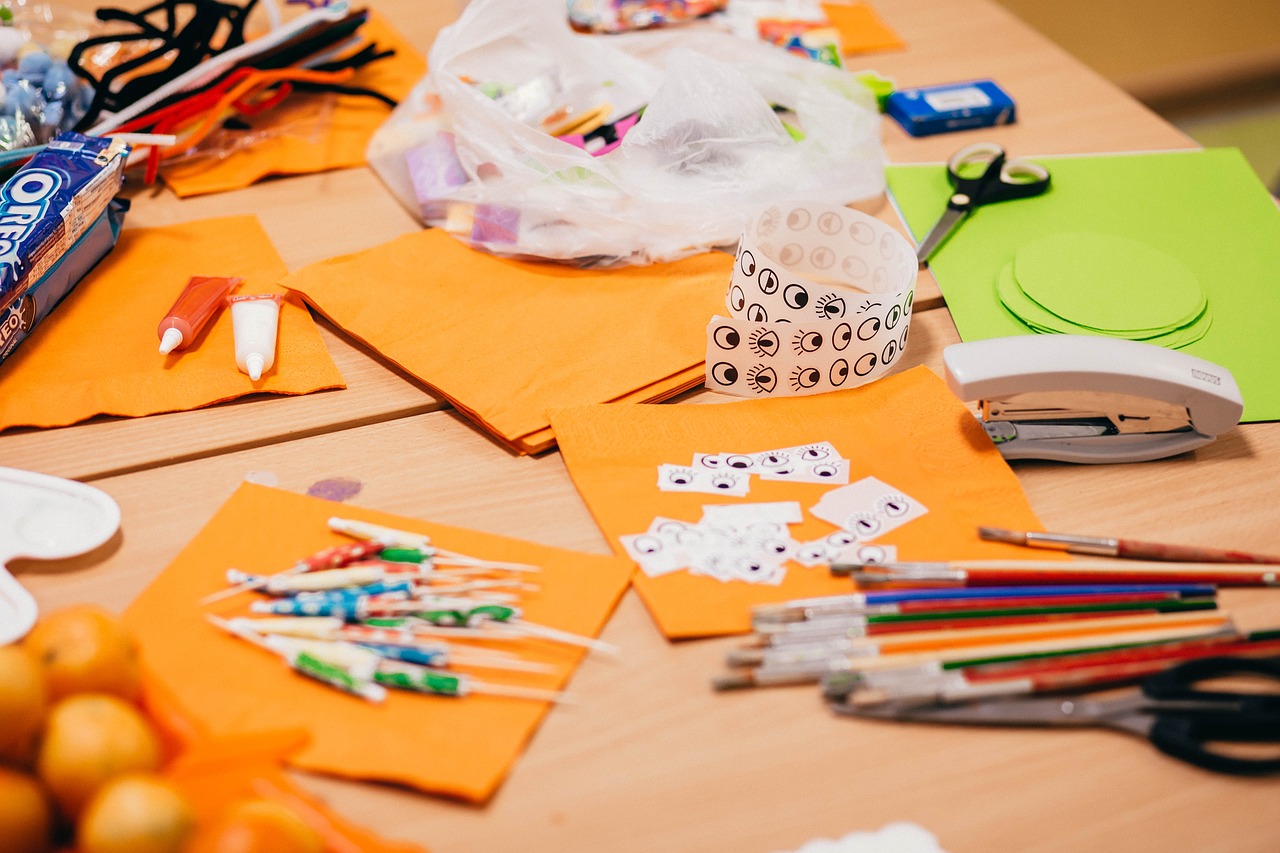Maybe school is closed for a snow day, or you just want some ways for your children to continue learning at home that don’t require a lot of preparation or technology. You can always just let your children play on their own with toys or books, but here are some ways you can facilitate play-based learning at home.
Crafting
1. Find everyday materials like (clean) coffee filters, advertisements and catalogs, or shipping boxes to decorate or use for building.
2. Use found objects (cardboard boxes, paper towel tubes, etc.) to build an obstacle course for toy cars or small balls. See how far the ball or car can roll.
Chores
3. Get a little help with chores and teach children how to take care of their belongings. Ask them to help you sort laundry, dust baseboards and other
non-fragile surfaces, or play a game while picking up toys by color, shape, or area.
4. Older children can reshelve books or organize toys in containers by color or size.
5. Cook together! Practice reading recipes (or invent your own!), finding ingredients, and using measuring spoons or cups. (With younger children, you may want to use pretend food.)
New Ways to Play
6. If you have pretend food, set a grocery advertisement out and encourage kids to match the play food
with the pictures in the ad. Or grab sturdy items out of the pantry like pasta boxes or spice shakers for them to match with ad pictures.
7. Kids can practice letters and numbers by playing with an old computer keyboard or remote control (remember to remove any batteries).
8. Let your kids dress up in your clothes. (You can even use the dirty laundry pile and just throw it all in the wash afterward.)
9. Read books backward for fun, or pick a random page and create your own story based on the picture alone.
10. Look through family photos together. Kids especially love seeing photos of their parents when they were young. Identify family members and relationships, tell the story behind the photo, or ask what they think is going on.
(Don’t forget these fun sit-with-me activities.)
The most important part of learning through play is to let children progress at their own pace. Encourage them to use their imaginations, but don’t demand a particular end result. Ask them questions but don’t require a “right” answer. The next time you have a snow day or a slow weekend afternoon, try one of these activities to help your students practice what they’ve learned at school.





